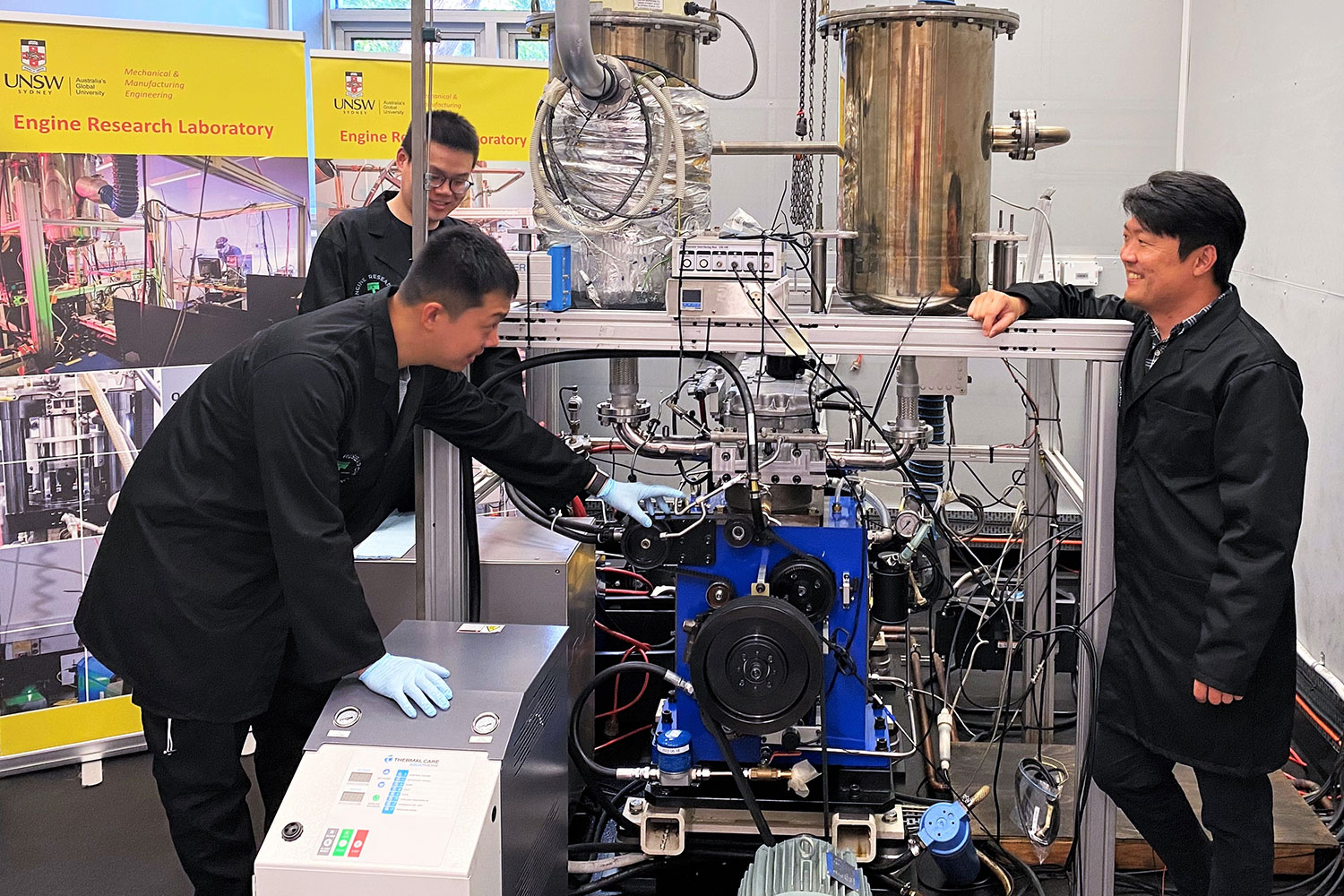
Engineers from UNSW Engine Research Laboratory have successfully converted a diesel engine to run as a hydrogen-diesel hybrid engine – reducing CO2 emissions by more than 85% in the process.
The team spent around 18 months developing the Hydrogen-Diesel Direct Injection Dual-Fuel System, which means existing diesel engines can run using 90% hydrogen as fuel. The researchers say that any diesel engine used in trucks and power equipment in the transportation, agriculture, and mining industries could ultimately be retrofitted to the new hybrid system in just a couple of months.
In their paper, the team shows that using their patented hydrogen injection system reduces CO2 emissions to just 90 g/kWh – 85.9% below the amount produced by the diesel-powered engine.
“This new technology significantly reduces CO2 emissions from existing diesel engines, so it could play a big part in making our carbon footprint much smaller, especially in Australia with all our mining, agriculture and other heavy industries where diesel engines are widely used,” says Professor Shawn Kook, who led the team. “We have shown that we can take those existing diesel engines and convert them into cleaner engines that burn hydrogen fuel.”
The UNSW team’s solution maintains the original diesel injection into the engine but adds a hydrogen fuel injection directly into the cylinder. The team found that specifically timed hydrogen direct injection controls the mixture condition inside the cylinder of the engine, which resolves harmful nitrogen oxide emissions that have been a major hurdle for the commercialization of hydrogen engines.
The new Hydrogen-Diesel Direct Injection Dual-Fuel System does not require extremely high-purity hydrogen, which must be used in alternative hydrogen fuel cell systems and is more expensive to produce. The diesel-hydrogen hybrid engine also showed a more than 26% increase in efficiency compared to existing diesel engines.
That improved efficiency is achieved by independent control of hydrogen direct injection timing, as well as diesel injection timing, enabling full control of combustion modes – premixed or mixing-controlled hydrogen combustion.
The team hopes to be able to commercialize the Hydrogen-Diesel Direct Injection Dual-Fuel System in the next 12 to 24 months and is keen to consult with prospective investors. They say the most immediate potential use for the new technology is in industrial locations where permanent hydrogen fuel supply lines are already in place, including mining sites.
New system retrofits existing diesel engines to run on 90% hydrogen
Source: Tambay News

0 Comments